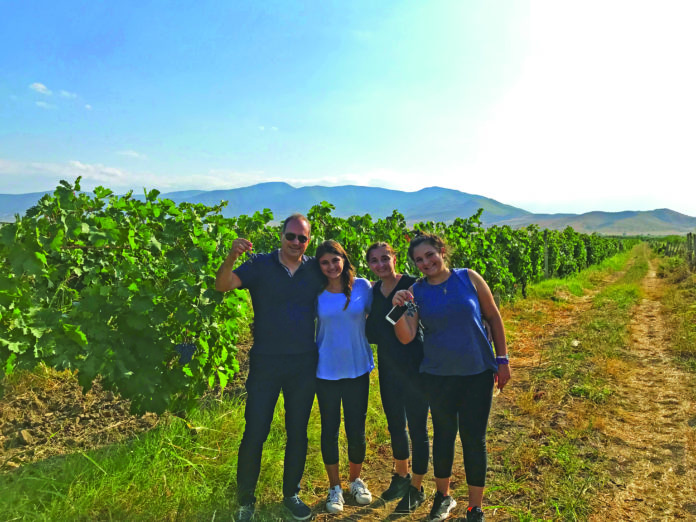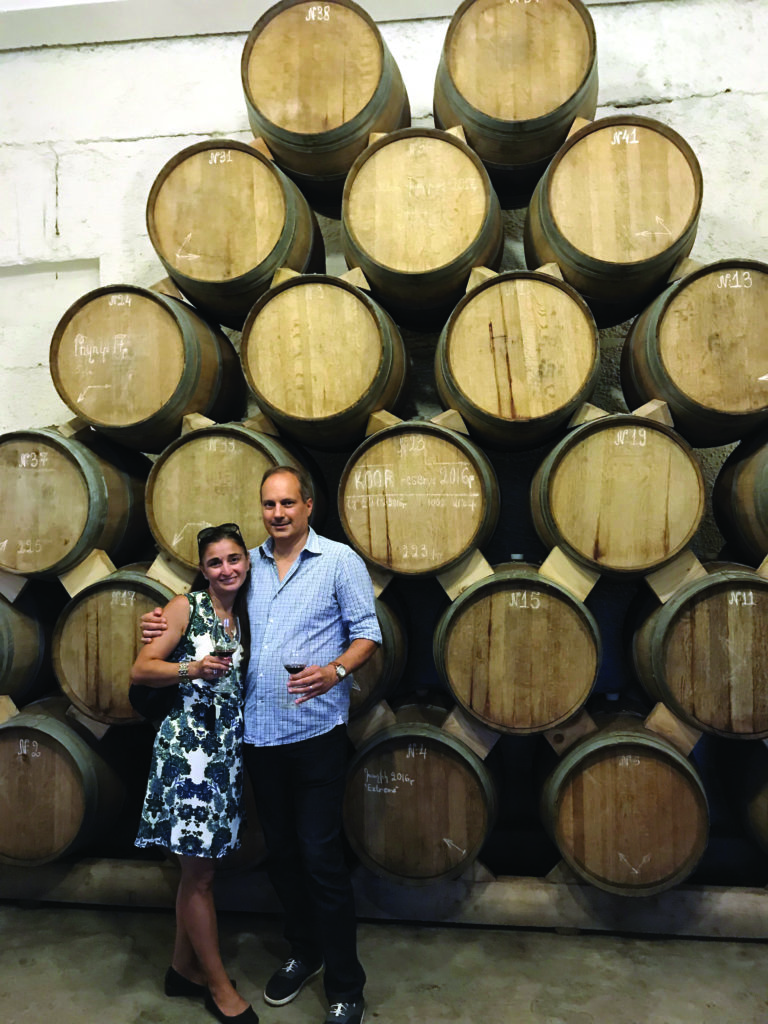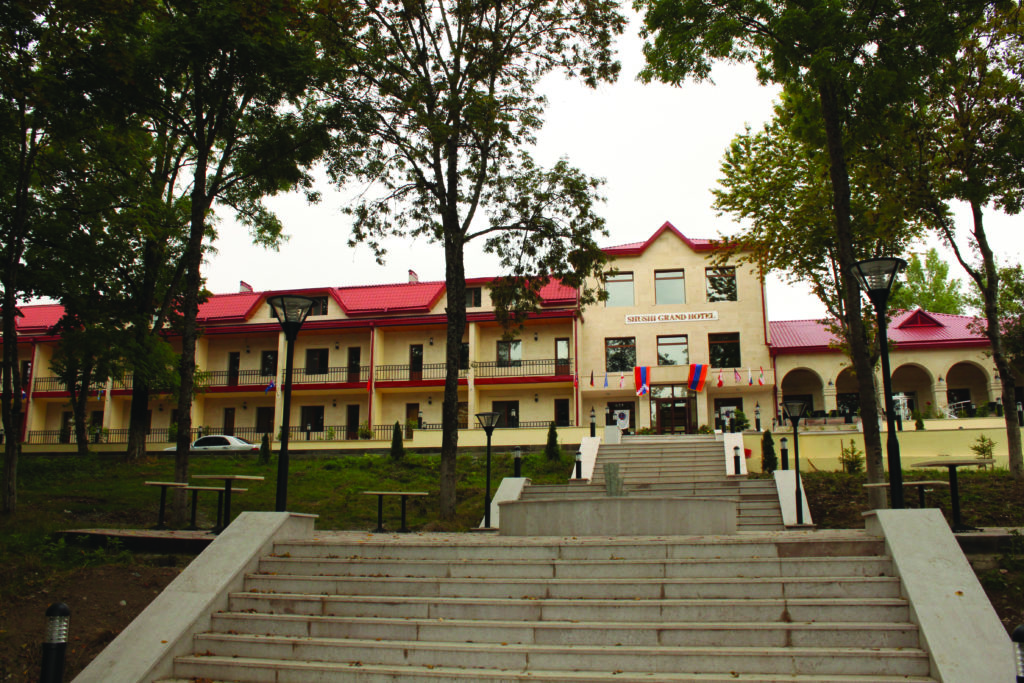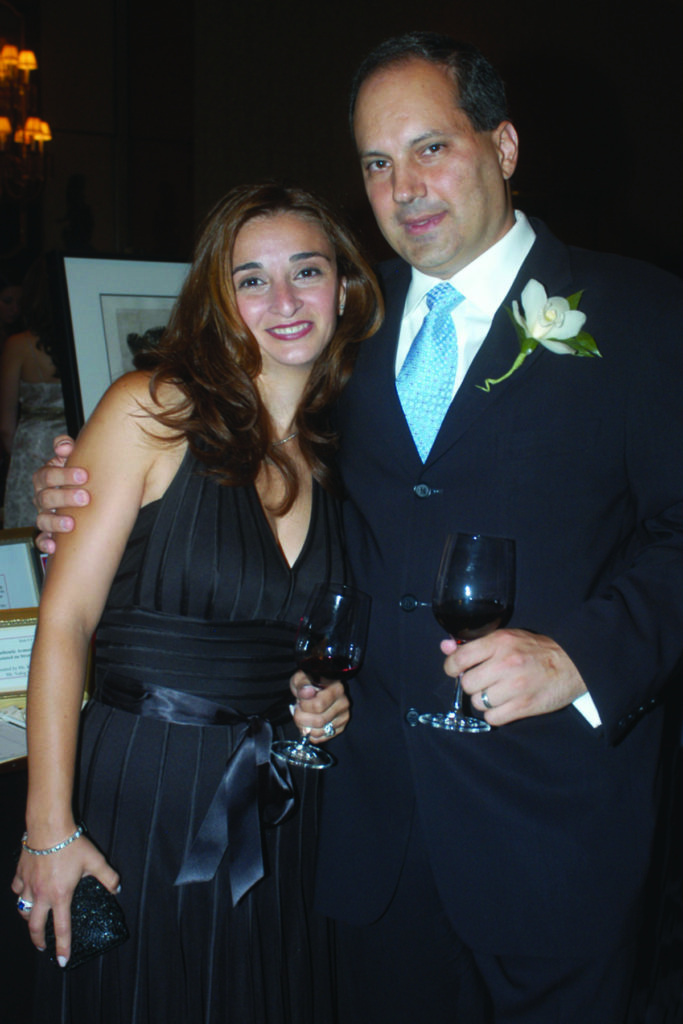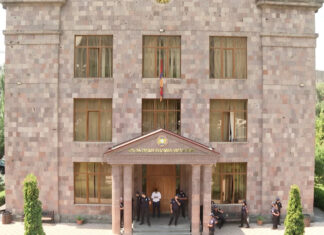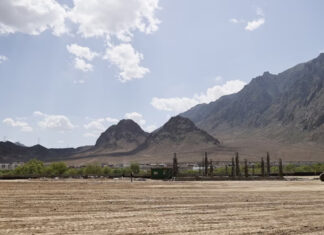NEW YORK — Armenia and Artsakh have a long history when it comes to wine; in fact, the oldest winery in the world, dating back more than 6,000 years, was found in Areni, Armenia. However, until the past decade, Armenia did have much success with wine, unlike its brandy, which has gained famed the world over.
Now, however, a new crop of wineries are pushing Armenia and Artsakh to be regional producers of top-notch wines.
The newest entrant in this field is Aran Winery, founded by New Jersey native Alex Sarafian and his wife, Talar Sesetyan Sarafian. Come fall, he is going to release his first batch of red and rosé wines.
Sarafian and his wife had owned Sarafian Vineyard for 14 years in Artsakh, and they sold their grapes to other wineries.
He explained, “While our vineyards produced tons of grape in the ensuing years since the vineyard’s founding, at the time the Armenian wine industry wasn’t well developed and we decided to sell the crop to other wineries or distilleries. It wasn’t until 2018 that we recognized the enormous progress that the Armenian wine industry had made over the prior 5 or so years. During a family trip to Armenia that year, we decided that the time was right to launch our own wine brand: Aran Wines.”
“Both my wife Talar and I are wine lovers,” he said.



